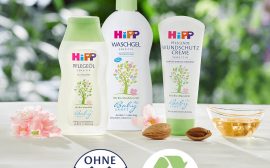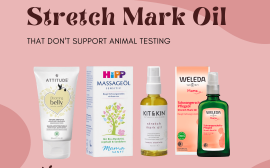Some people have the misconception that cruelty-free means vegan. I consider cruelty-free as being the first stage to veganism. The term “cruelty-free” is used only for products that are not tested on animals, this means that cruelty-free products can contain animal-derived ingredients. When you want to lead also a vegan lifestyle you have to look for “cruelty-free and vegan” products. On the other hand, the term “vegan” doesn’t guarantee that the product wasn’t tested on animals. However, I will cover this topic in a future post.
There is a long list of animal-derived ingredients in the cosmetics world, which you can find on the PETA website. However, I will be listing the common ones I watch out for when I am at a shop and I am quickly filtering products.
Bee Products (Beeswax, Honey, Bee pollen…)
I have always wondered what’s cruel about eating honey, beeswax, bee pollen and other bee products, as the bees are producing these ingredients at their own will. However recently I’ve heard what the cruelty in the beekeeping industry is. Vegans don’t take bee products because to commercially produce these ingredients, the beekeeper has to cut off the wings of the queen bee so that she doesn’t fly away to some other place to create her new hive. The bee workers follow their queen, so cutting her wings makes sure that the bees are kept in the beekeeper’s hive.
Carmine (a.k.a. cochineal, cochineal extract, crimson lake or carmine lake, natural red 4, C.I. 75470, or E120)
Carmine is derived from crushed cochineal beetles. It is the commonly used red colour, one finds in cosmetics, food and drinks. So next time you buy your coloured cosmetics, or berry flavoured food or drinks, make sure it hasn’t got carmine listed. I know it’s a lot of naming versions to remember for one ingredient. However unless they specify with the terms “carmine” or “cochineal”, try to remember at least the C.I. number for cosmetics or the E number for food and drinks. I don’t remember the whole C.I. number but I know that most C.I. numbers start with 77 so when it doesn’t, I suspect that it’s carmine.
Lanolin
Lanolin is the sheep fat found in wool. Hence why it sounds like the Italian word for wool, “Lana”. So if you don’t buy wool products, you should also watch out for lanolin.
Retinol
Retinol is the Vitamin A animal-derived ingredient commonly found in most anti-aging products. It is derived from fish liver oil (e.g., shark liver oil).
Urea
You find Urea in a lot of cosmetics. I have also found brands that called some of their beauty ranges “Urea”. What people don’t know is that urea is derived from animal pee, that’s why it sounds like “urine”. It might not sound cruel to you but it’s surely disgusting for me. Some examples of cosmetic products that contain this animal-derived ingredient are deodorants, ammoniated dentifrices, mouthwashes, hair colourings, hand creams, lotions, and shampoos.
Those are the five common non-vegan ingredients that I watch out for when I buy my vegan cosmetic products. For an extended list of ingredients, check out the animal-derived ingredients list on the PETA website.
I would love to know which other common non-vegan ingredients you watch out for.




